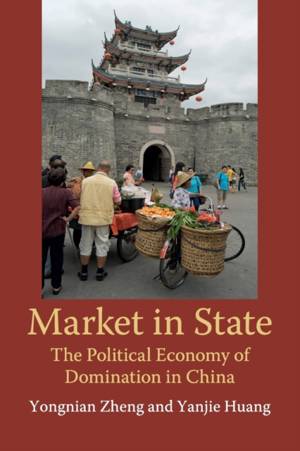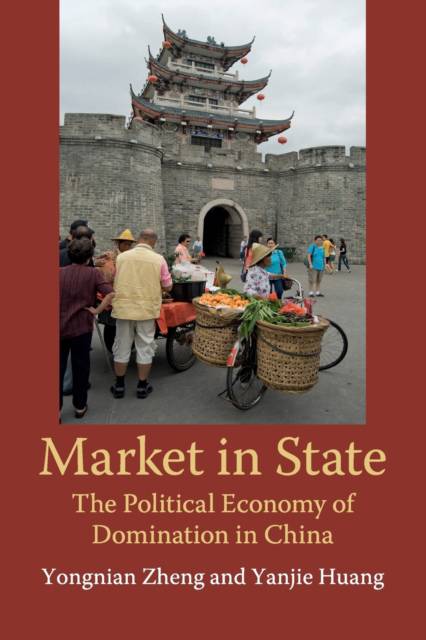
- Afhalen na 1 uur in een winkel met voorraad
- Gratis thuislevering in België vanaf € 30
- Ruim aanbod met 7 miljoen producten
- Afhalen na 1 uur in een winkel met voorraad
- Gratis thuislevering in België vanaf € 30
- Ruim aanbod met 7 miljoen producten
Zoeken
Market in State
The Political Economy of Domination in China
Yongnian Zheng, Yanjie Huang
Paperback | Engels
€ 72,45
+ 144 punten
Omschrijving
Focusing on the evolving relations between the state and market in the post-Mao reform era, Yongnian Zheng and Yanjie Huang present a theory of Chinese capitalism by identifying and analyzing three layers of the market system in the contemporary Chinese economy. These are, namely, a free market economy at the bottom, state capitalism at the top, and a middle ground in between. By examining Chinese economic practices against the dominant schools of Western political economy and classical Chinese economic thoughts, the authors set out the analytical framework of 'market in state' to conceptualize the market not as an autonomous self-regulating order but part and parcel of a state-centered order. Zheng and Huang show how state (political) principles are dominant over market (economic) principles in China's economy. As the Chinese economy continues to grow and globalize, its internal balance will likely have a large impact upon economies across the world.
Specificaties
Betrokkenen
- Auteur(s):
- Uitgeverij:
Inhoud
- Aantal bladzijden:
- 490
- Taal:
- Engels
Eigenschappen
- Productcode (EAN):
- 9781108461573
- Verschijningsdatum:
- 6/09/2018
- Uitvoering:
- Paperback
- Formaat:
- Trade paperback (VS)
- Afmetingen:
- 227 mm x 155 mm
- Gewicht:
- 684 g

Alleen bij Standaard Boekhandel
+ 144 punten op je klantenkaart van Standaard Boekhandel
Beoordelingen
We publiceren alleen reviews die voldoen aan de voorwaarden voor reviews. Bekijk onze voorwaarden voor reviews.







